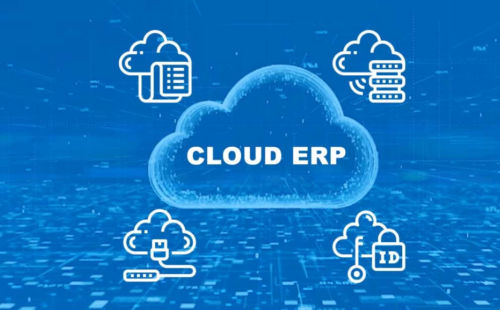New Cloud ERP System: Revolutionizing Business Operations – In today’s rapidly evolving business landscape, the adoption of innovative technologies is crucial for staying competitive.
One such technology that has gained significant traction in recent years is Cloud ERP (Enterprise Resource Planning) systems. These systems offer a comprehensive solution for managing various aspects of a business, from finance and HR to supply chain and customer relationship management.
Introduction to New Cloud Erp System
Cloud ERP systems are software platforms that integrate and automate core business processes, accessible through the internet. Unlike traditional ERP systems that require on-premises hardware and maintenance, cloud-based solutions operate on remote servers managed by third-party providers.
Advantages of Cloud ERP Systems
Cost-effectiveness
One of the primary advantages of cloud ERP systems is their cost-effectiveness. By eliminating the need for upfront hardware investments and reducing IT infrastructure expenses, businesses can significantly lower their overall operating costs.
Scalability
Cloud ERP systems offer scalability, allowing businesses to easily adjust resources and capabilities according to their changing needs. Whether it’s adding new users, expanding into new markets, or integrating additional modules, cloud-based solutions can accommodate growth seamlessly.
Accessibility
Another key benefit of cloud ERP systems is accessibility. With data stored in the cloud, employees can access critical information anytime, anywhere, using any internet-enabled device. This level of flexibility promotes collaboration and productivity, especially in today’s remote work environment.
Key Features of Cloud ERP Systems
Integration
Cloud ERP systems streamline operations by integrating various business functions into a single platform. This integration ensures seamless communication between different departments, minimizing data silos and improving overall efficiency.
Real-time Data
Cloud ERP systems provide real-time visibility into key business metrics, enabling informed decision-making. With up-to-date insights and analytics, businesses can respond quickly to market changes and capitalize on new opportunities.
Customization
Unlike one-size-fits-all solutions, cloud ERP systems offer customization options to suit specific business requirements. From tailoring workflows and reports to configuring user permissions, businesses can adapt the system to align with their unique processes and objectives.
Implementation Process of Cloud ERP Systems
Assessment and Planning
The first step in implementing a cloud ERP system is to assess the organization’s needs and objectives. This involves identifying pain points, defining goals, and evaluating potential solutions based on budget and functionality.
Configuration
Once a cloud ERP system is selected, the next step is configuration. This involves setting up the system according to the organization’s requirements, including data migration, module customization, and integration with existing software.
Training and Deployment
Training is essential for ensuring a smooth transition to the new cloud ERP system. Employees should receive comprehensive instruction on system navigation, functionality, and best practices. Deployment involves launching the system and monitoring its performance to address any issues that may arise.
Security Measures in Cloud ERP Systems
Data Encryption
To protect sensitive information, cloud ERP systems employ encryption techniques to secure data both in transit and at rest. This ensures that unauthorized users cannot access or manipulate confidential data.
Access Controls
Cloud ERP systems implement access controls to restrict user permissions based on roles and responsibilities. This helps prevent unauthorized access to sensitive areas of the system and reduces the risk of data breaches.
Regular Updates
To stay ahead of emerging threats, cloud ERP providers regularly release security updates and patches. These updates address vulnerabilities and strengthen the system’s defenses against cyber threats, ensuring ongoing protection of data.
Choosing the Right Cloud ERP System
Business Needs Assessment
Before selecting a cloud ERP system, businesses should conduct a thorough assessment of their needs and objectives. This involves identifying key requirements, such as scalability, functionality, and integration capabilities.
Vendor Selection
When choosing a cloud ERP vendor, businesses should consider factors such as reputation, reliability, and customer support. It’s essential to select a vendor with a proven track record of success and a commitment to ongoing innovation.
Demo and Trial
Before making a final decision, businesses should request demos and trials of potential cloud ERP systems. This allows stakeholders to evaluate the system’s usability, features, and compatibility with existing infrastructure before making a commitment.
Conclusion
In conclusion, cloud ERP systems offer a powerful solution for streamlining business operations and driving growth. With their cost-effectiveness, scalability, and accessibility, these systems empower organizations to achieve greater efficiency and agility in today’s competitive marketplace.
By carefully assessing needs, selecting the right vendor, and implementing robust security measures, businesses can maximize the benefits of cloud ERP systems and stay ahead of the curve.
FAQs
What is a cloud ERP system?
A cloud ERP system is a software platform that integrates and automates core business processes, accessible through the internet.
What are the advantages of cloud ERP systems?
Cloud ERP systems offer cost-effectiveness, scalability, and accessibility, among other benefits, compared to traditional on-premises solutions.
How do cloud ERP systems ensure security?
Cloud ERP systems employ data encryption, access controls, and regular updates to protect sensitive information from cyber threats.
What factors should businesses consider when choosing a cloud ERP system?
Businesses should consider factors such as their specific needs, vendor reputation, and system compatibility when selecting a cloud ERP system.
What is the implementation process for a cloud ERP system?
The implementation process typically involves assessment and planning, configuration, training, and deployment to ensure a smooth transition and successful adoption.
